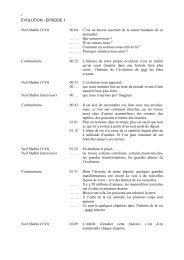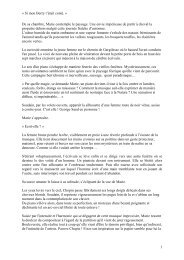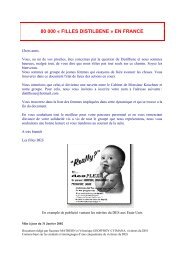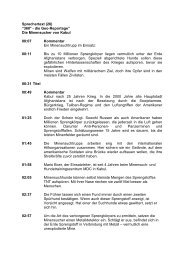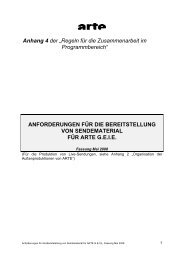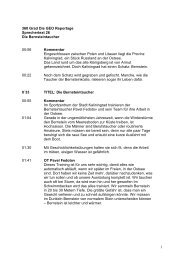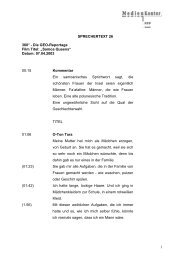POPs IN AFRICA HAZARDOUS WASTE TRADE 1980 - 2000 ... - Arte
POPs IN AFRICA HAZARDOUS WASTE TRADE 1980 - 2000 ... - Arte
POPs IN AFRICA HAZARDOUS WASTE TRADE 1980 - 2000 ... - Arte
You also want an ePaper? Increase the reach of your titles
YUMPU automatically turns print PDFs into web optimized ePapers that Google loves.
The <strong>POPs</strong> treaty<br />
With these destructive practices banned under international law,<br />
the environmental and human health will greatly benefit. And,<br />
with these cheap disposal methods closed off, industries<br />
generating hazardous wastes and toxic chemicals will have much<br />
greater incentive to implement clean production methods that do<br />
not result in the use and release of toxic substances in the<br />
environment.<br />
The subsequent issue in need of global focus, and continued<br />
African leadership was, and is the issue of Persistent Organic<br />
Pollutants (<strong>POPs</strong>). Under the auspices of the UNEP, the<br />
international community began negotiating a global treaty in<br />
1998 to ban the worst of the toxic chemicals. To be adopted in<br />
May 2001 in Stockholm, the <strong>POPs</strong> treaty includes necessary<br />
provisions that resulted, to a large extent, due to the continuing<br />
political leadership that Africa, among others, has provided.<br />
After five official Intergovernmental Negotiating Committee<br />
meetings (<strong>IN</strong>Cs) to draft the <strong>POPs</strong> Convention, the international<br />
community, led by Africa (and other developing countries with<br />
China), and the European Union (EU) have moved in the right<br />
direction to produce a treaty for the purpose of preventing new<br />
<strong>POPs</strong> and eliminating existing <strong>POPs</strong>. The <strong>POPs</strong> treaty, or<br />
Stockholm Convention will now depend on the necessary<br />
political and industrial will to ensure its expeditious and effective<br />
implementation.<br />
But leadership and strong resolve was again necessary during<br />
the final negotiations of the <strong>POPs</strong> treaty in order to produce the<br />
provisions capable of adequately addressing the toxics crisis.<br />
The same political dynamic existed in the <strong>POPs</strong> context as in the<br />
other issues, e.g., waste trade discussed above. A few wealthy<br />
industrialised countries led by the US continued to attempt to<br />
create a weak ineffective draft text at the expense of our future.<br />
Fortunately, the will and resolve of the majority of States led by<br />
the EU and Africa prevailed over these few industrialised<br />
governments unwilling to make the needed changes toward<br />
sustainable development.<br />
In addition to the <strong>POPs</strong> treaty having the potential to phase out<br />
all <strong>POPs</strong>, it provides an opportunity to mobilise the international<br />
community to finally address and solve the legacy and on-going<br />
crisis of obsolete pesticide stockpiles, a significant portion of<br />
which are <strong>POPs</strong>.<br />
8



